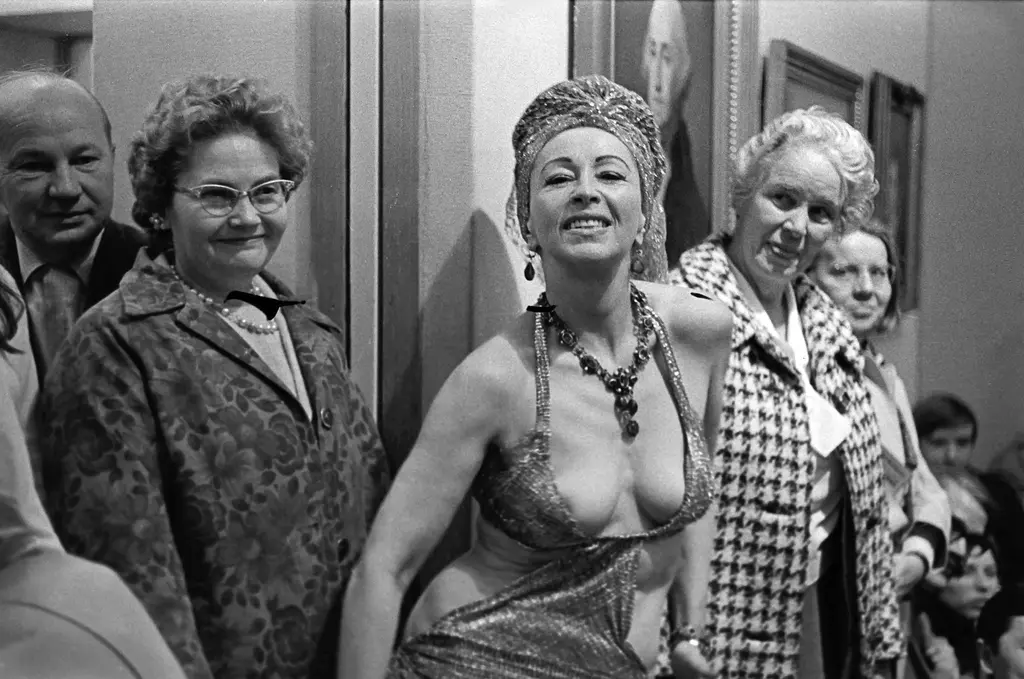Run toward the noise: Lessons on embracing the future
- Text by Advertorial
- Photography by Nic Serpell-Rand

Climbing the brushed concrete stairs of London’s Roundhouse, flanked by staff in minimalist, grey uniforms, it all feels like a sci-fi movie. But which one?
As the night progresses and we see more of the twists and turns of BMW Group’s Future Experience Exhibition, we’ll step through the bustling metropolises of tomorrow, brought to life best in Blade Runner, and dwell on technologically manipulating our emotions, as explored in Total Recall.
This evening of free-ranging discussion is inspired by BMW Group’s centenary celebrations. One of four brands within the group, MINI, has chosen to use this milestone not to look back, but gaze forward into the next hundred years and launched The Future Shapers Project, which invites artists working at the frontiers of design and technology to explore where we go from here.

In the glittering circular arena upstairs, Vice’s head of innovation, Mark Adams kicks things off with a challenge to all of those who look to the future and see nothing but doom and dystopia. Mark gives the crowd convincing argument to rethink our relationship with the future: just think how crap the past was.
OK, so climate change and international terrorism might make the horizon a little less rosy than we’d like, but remember using a pencil to unjam those mangled cassette tapes? Or MiniDiscs, they were even worse.
Swedish futurologist Magnus Lindkvist takes the stage to chronicle society’s departure from the disconnected existence of the farm to the constantly connected megacities – and speculates how our lives will change as these developments continue forward.
The fear that no doubt worries everyone reading this is will my job survive the advance of technology? There’s bad news for accountants and lawyers, but surprisingly dentists and priests come out on top. Magnus groups the jobs he predicts surviving into four groups: Oracles, Curators, Guides or Genies.
Through each of the talks, an important idea keeps coming up: the sharing economy. Ambitious startups like AirBnB represent just the beginning of this radical move away from ownership towards more of a focus on the experiences which make up our lives. Learning how to create ever-more efficient systems that allow us to share products or services with one another will allow us to overcome the ever-greater competition for the finite resources of our planet.
Cue the unveiling of MINI Vision 100, a concept car designed for the sharing economy. Intended to be used by multiple users in one day, its interface remembers each drivers’ preferences and can adapt its controls and internal environment to best fit their needs.


Pioneering experiential artist Marcus Lyall’s Future Shapers Project was inspired the same kind of thinking. Marcus developed a personal, interactive light and sound installation that reads human emotions to change them through sensory experiences. “I live in London, I drive in London,” Marcus explains. “When MINI approached me, I started thinking about autonomous travel and the fact that sometimes you’re going to want to drive for pleasure. But then you might also be stuck on the southbound approach to the Blackwall Tunnel. At those times what can you use your car for? Could it be a space where you can meditate, your own space where you can emotionally prepare for where you’re going?”


Leaving the event, it’s Magnus Lindkvist’s words that keep ringing in the ears. His advice to survive the future: run toward the noise – the places where new ideas are battling it out for dominance are where the future will be formed. Think Silicon Valley or the R&D labs of China’s industrial megacities. Embracing these innovative spaces and the transformations they bring into being is how to keep afloat as the world moves ever-more rapidly around us.
Find out more about on MINI NEXT100.
You might like

Capturing life in the shadows of Canada’s largest oil refinery
The Cloud Factory — Growing up on the fringes of Saint John, New Brunswick, the Irving Oil Refinery was ever present for photographer Chris Donovan. His new photobook explores its lingering impacts on the city’s landscape and people.
Written by: Miss Rosen

Susan Meiselas captured Nicaragua’s revolution in stark, powerful detail
Nicaragua: June 1978-1979 — With a new edition of her seminal photobook, the Magnum photographer reflects on her role in shaping the resistance’s visual language, and the state of US-Nicaraguan relations nearly five decades later.
Written by: Miss Rosen

A visual trip through 100 years of New York’s LGBTQ+ spaces
Queer Happened Here — A new book from historian and writer Marc Zinaman maps scores of Manhattan’s queer venues and informal meeting places, documenting the city’s long LGBTQ+ history in the process.
Written by: Isaac Muk

Nostalgic photos of everyday life in ’70s San Francisco
A Fearless Eye — Having moved to the Bay Area in 1969, Barbara Ramos spent days wandering its streets, photographing its landscape and characters. In the process she captured a city in flux, as its burgeoning countercultural youth movement crossed with longtime residents.
Written by: Miss Rosen

In photos: 14 years of artist Love Bailey’s life and transition
Dancing on the Fault Line — Photographer Nick Haymes’s new book explores a decade-plus friendship with the Californian artist and activist, drawing intimate scenes from thousands of pictures.
Written by: Miss Rosen

Dalia Al-Dujaili: “When you’re placeless, nature can fill the void”
Babylon, Albion — As her new book publishes, the British-Iraqi author speaks about connecting with the land as a second-generation migrant, plants as symbols of resistance, and being proud of her parents.
Written by: Zahra Onsori


